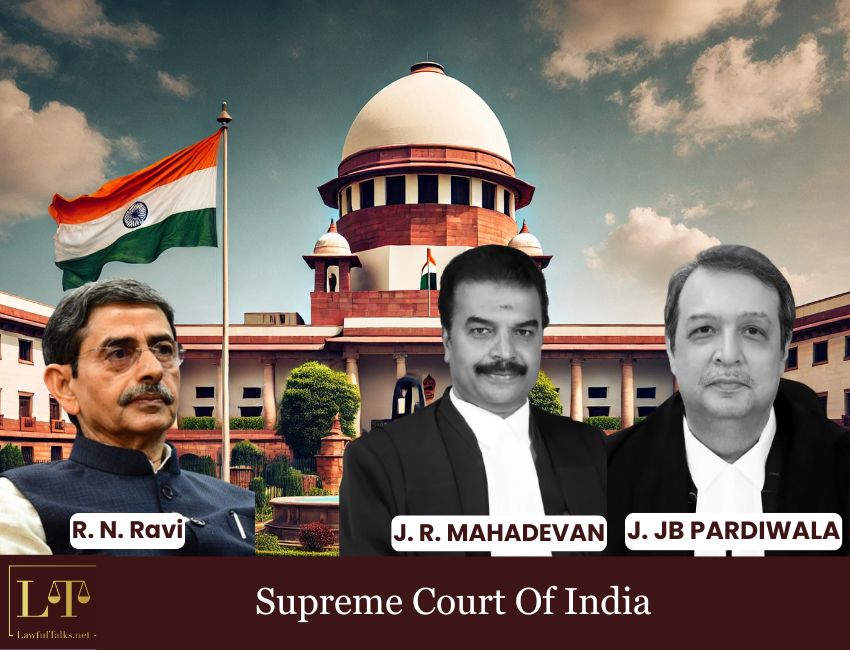Allahabad HC Sets Aside Afzal Ansari's Conviction, Allows Him to Continue as MP

In a possibly unprecedented decision, the Supreme Court, a while ago, rapped the Governor of Tamil Nadu, RN Ravi, observing that a Governor does not possess the authority to indefinitely withhold bills sent by a state legislature. The bench of Justice JB Pardiwala and Justice R Mahadevan reprehended the handling of 10 bills that would be, “deemed to have been cleared from the date they were presented again to the Governor after reconsideration by the legislature.”

The Court made it clear that once a bill is re-submitted after reconsideration by the assembly, the Governor is constitutionally required to grant assent. The Governor can refuse assent only if the bill is different from its previous form.
The bench stated:
"Action of Governor to reserve the 10 bills for President is illegal and arbitrary and thus the action is set aside. All actions taken by Governor thereto for the 10 bills is set aside. The 10 bills shall be deemed to be clear from the date it was re-presented to the Governor."
This judgment came in response to a petition filed by the Tamil Nadu government challenging the Governor’s delay and refusal in approving multiple bills passed by the legislative assembly.
Addressing the Governor's prolonged inaction, the Court noted:
“There is no expressly specified time limit for the discharge of the functions by the Governor under Article 200 of the Constitution. Despite there being no prescribed time limits, Article 200 cannot be read in a manner which allows the Governor to not take action upon this, which are presented to him for assent and thereby delay, and essentially roadblock law making machinery in the State...Whenever a bill is presented to the Governor, he is under a constitutional obligation to adopt one of the three courses of action available."
In a significant step, the Court introduced clear timelines within which Governors must act on bills passed by the legislature. It also clarified that non-compliance with these timelines could bring the Governor’s inaction under judicial review.
The timelines outlined are:
- If the Governor withholds assent and reserves the bill for the President with the aid and advice of the Council of Ministers: maximum of one month
- If the Governor withholds assent without such aid and advice: bill must be returned within three months
- If the bill is re-presented after reconsideration by the legislature: Governor must give assent within one month
The State government had approached the Supreme Court seeking directions to ensure that the Governor or President act on bills within a fixed timeframe. It argued that the Governor’s indefinite delay was paralyzing governance, hence judicial intervention was necessary.
On February 11, the Court had asked the Governor how he could refer a bill to the President after it had already been reconsidered and passed again by the legislature. In earlier hearings also, the Court had criticized the Governor for appearing to have "devised his own procedure" in dealing with bills, which was undermining constitutional processes.
Leave a Comment

Shalini Chavan
Advocate, Bombay High Court
Latest Posts
Categories
- International News 19 Posts
- Supreme Court 326 Posts
- High Courts 339 Posts







































































































































































































































































































































































































































































































































































































































































































